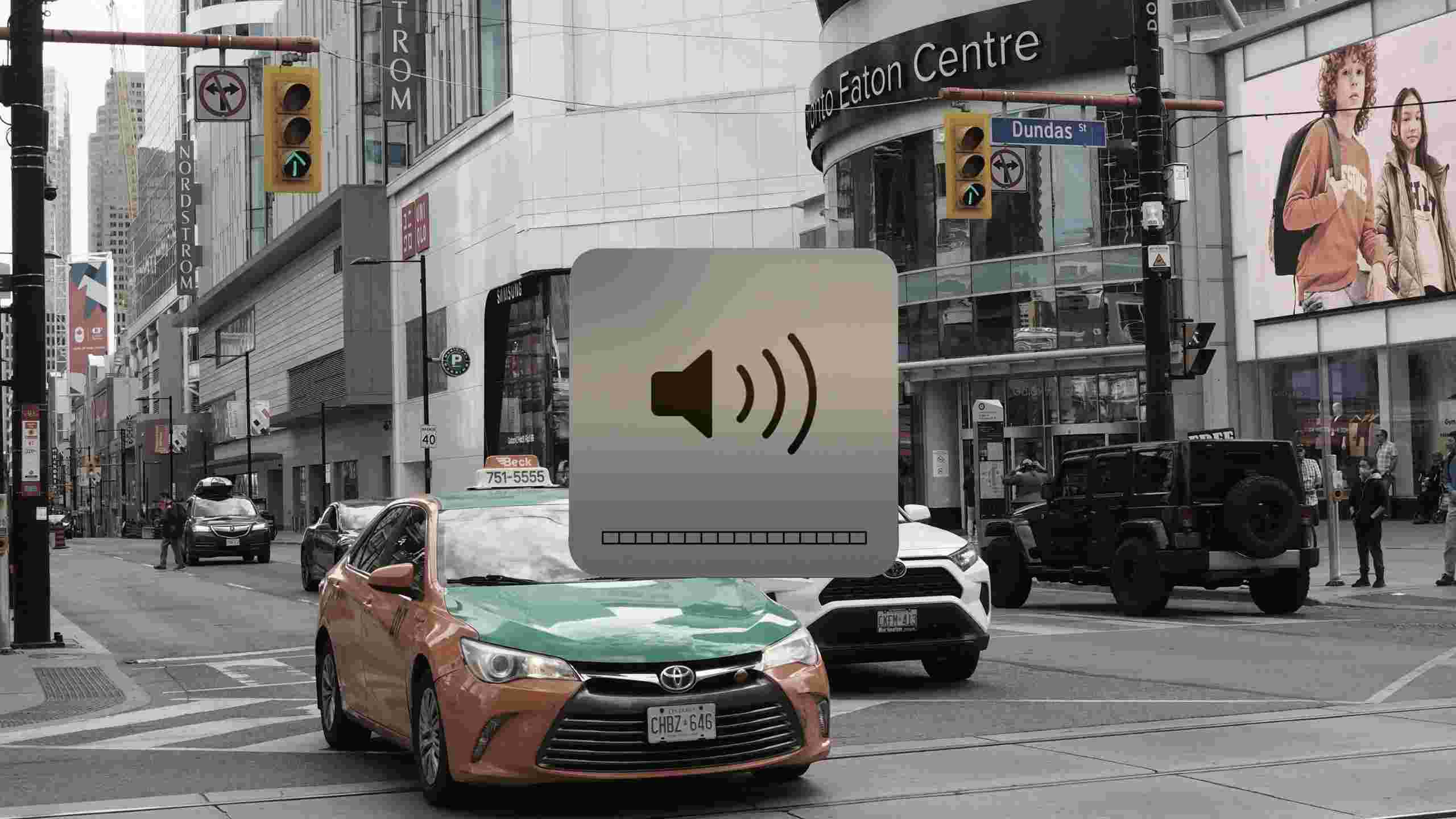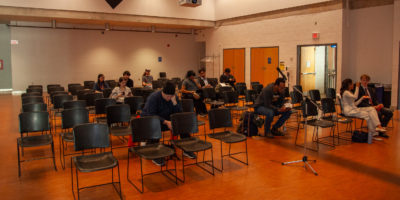By Stacey Nguyen
Research by a Ryerson health geographer has found that Torontonians’ frequent noise exposure can contribute to serious health conditions.
The study shows that ongoing noise pollution—particularly chronic traffic noise—can add stress to people’s lives resulting in adverse health impacts, including sleep disruption and contributing to developing health issues, such as high blood pressure or diabetes.
After a city noise bylaw review led to a request to study the health effects of noise, Ryerson health geographer Tor Oiamo and Toronto Public Health began measuring noise levels in over 200 locations throughout the city and modelled noise exposure using traffic volumes, which can predict noise levels.
In a paper published in the Environmental Health Perspectives co-authored by Oiamo, the research found that frequent exposure to traffic noise is linked with an increased risk of acute heart attacks and congestive heart failure for Toronto residents between the ages of 30 and 100.
“There’s certainly no short-term effects on well-being that are concerning, but there are long term detrimental health outcomes”
While his research found that noise pollution can cause severe health implications, Oiamo suggests that Ryerson students shouldn’t be too worried about living in the noisy city during their studies unless they plan to stay for an extended period.
“The research shows that [health impacts are found] mostly among populations that have been exposed to excessive levels of noise for a long period of time, so over 10, 15 or maybe 20 years,” said Oiamo. “Often, it’s not noise by itself, but there are other stressors involved too.”
Although students’ health may not be severely affected living in Toronto during their studies, Oiamo said the immediate impacts of noise pollution can still interrupt the lives of people living in the city.
“We all understand that even one night with too much noise going on is going to wreck your day or make it hard to concentrate in class,” said Oiamo.
“There’s certainly no short-term effects on wellbeing that are concerning, but there are long-term detrimental health outcomes,” he said. “Students would probably know if it’s a problem because it’s probably disturbing their sleep.”
To help minimize sleep disturbances from the city’s noise, Oiamo suggested Ryerson students wear earplugs and rearrange living quarters to avoid windows. However, the researcher says there is still little individuals can do to prevent the negative health impacts of frequent exposure to noise pollution.
“It’s often not something individuals can do a whole lot about. You’re confined to the space you live in,” said Oiamo. “You can do little things on your own as best as you can, but it’s a public health problem.”
To minimize ongoing noise exposure, Oiamo is calling for systemic solutions.
“The more noise you make about it, the more potential there is for these things to be addressed”
“Buildings that are close to busy roads should be built in a way that they don’t necessarily have as much exposure to that traffic noise as they do now,” said Oiamo. “If that can’t be done, things like just slowing down traffic can help a lot. The slower cars move, the less noise they make.”
Oiamo also said a lot of little things can add up to make a significant difference, but it has to be done in a systemic, urban or at least neighbourhood scale.
“It’s a difficult thing for individuals to solve, other than moving away, which is also not something that people should have to do.”
Despite the evidence linking ongoing noise exposure to health issues, Oiamo said little progress has been made on the subject. That’s why the researcher is encouraging students to make their own noise on the topic.
“More and more people are getting into the same area of the city, so density is increasing. More people are receiving all of this excessive noise,” said Oiamo.
“The more noise you make about it, the more potential there is for these things to be addressed and come on to legislative tables,” said Oiamo. “We need stronger policies. We need better laws and more enforcement.”










Leave a Reply